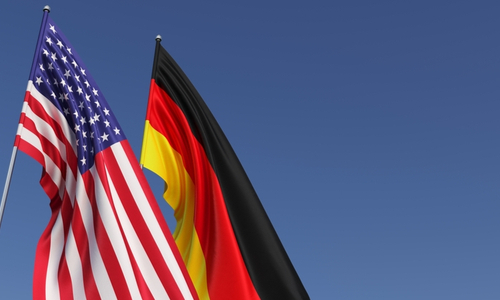US and German officials have seized what they described as the world’s largest and most prominent darknet market, which traffics in illicit goods and services.
The Hydra Market’s servers were shut down and cryptocurrency wallets containing $25 million worth of Bitcoin were confiscated by German police on Tuesday. The US Department of Justice announced criminal charges against Dmitry Pavlov, a 30-year-old Russian resident, for conspiracy to distribute narcotics and conspiracy to commit money laundering in connection with his operation and administration of Hydra’s servers.
The US Treasury Department, meanwhile, announced sanctions against Hydra Market, and a “ransomware-enabling” virtual currency exchange called Garantex, which mostly operates out of Russia. The exchange was founded in late 2019 and originally registered in Estonia, with analyses of the exchange’s transactions showing that over $100 million are associated with illicit actors and darknet markets.
“The Department of Justice will not allow darknet markets and cryptocurrency to be a safe haven for money laundering and the sale of hacking tools and services,” said Deputy Attorney General Lisa Monaco, in prepared remarks. DA Monaco had announced in October a number of DOJ initiatives to more aggressively tackle cybercrime, including the use of cryptocurrencies to finance harmful activities.
Started in 2015, Hydra allegedly offered a wide variety of illegal goods and services to mainly Russian-speaking countries. Its wares included hacking software, fake IDs and illegal drugs such as heroin, cocaine and LSD, which were openly advertised on the site, according to US officials. In addition, Hydra offered a “robust array” of money laundering and “cash-out” services to wash illicit proceeds, authorities said.
Cybercriminals that attack US companies, as well as other criminals are typically paid in cryptocurrency. The hackers often use a mix of different cryptocurrency services to accept and transfer these payments, helping hide them from law enforcement. However, authorities have started to get serious about regulating and cracking down on this aspect of cryptocurrencies in recent months as the digital assets gain in importance and popularity.
Want more news? Subscribe to CPI’s free daily newsletter for more headlines and updates on antitrust developments around the world.

